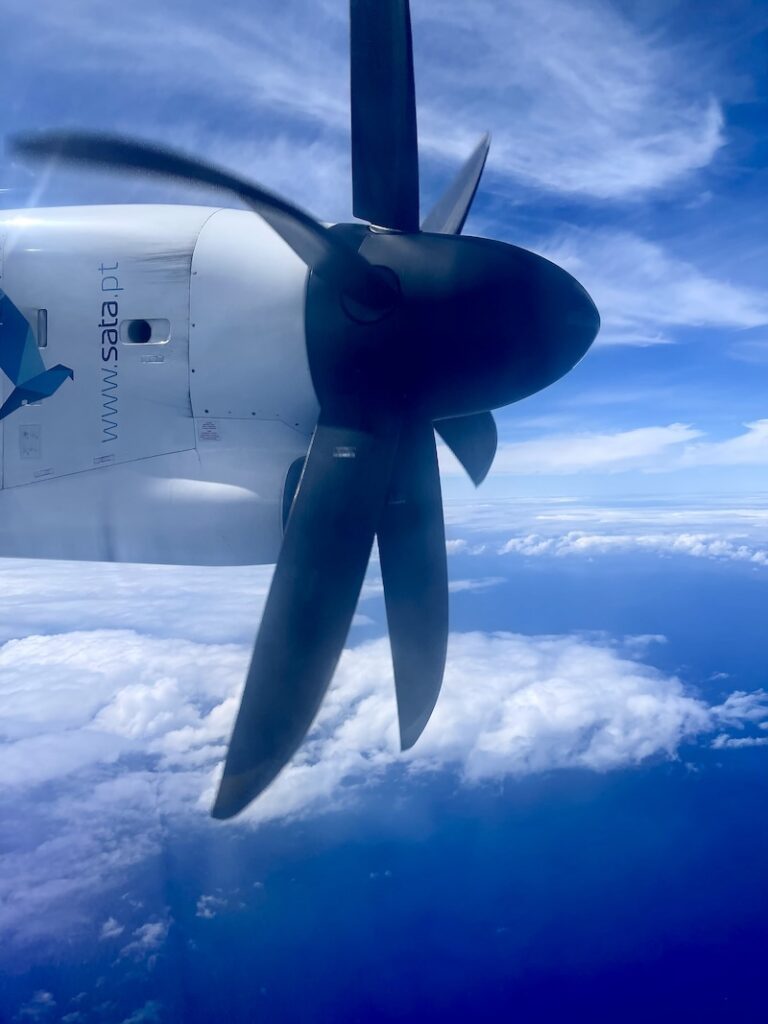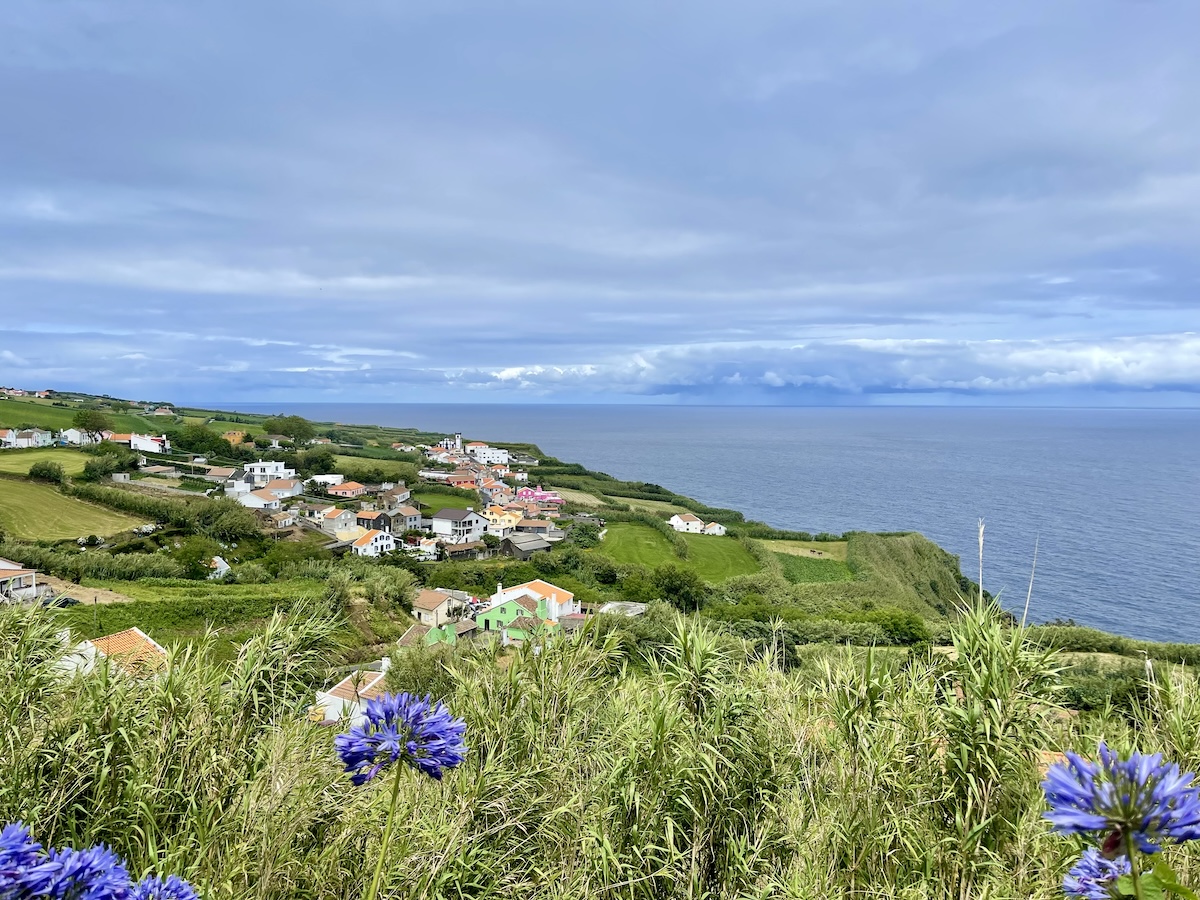Disclaimer: This post may contain affiliate links, but all content is based off our own opinions and experiences. We may receive a commission from purchases made through the links enclosed at no additional cost to you!
The Azores islands attract visitors from around the world. As a fairly remote location, the Azores are a destination that may elicit one key question when planning a trip: Are the Azores expensive to visit?
This question is relative and requires us to dive into the several factors that contribute to the overall cost of a trip to the Azores. A breakdown of these components will provide insight to help you budget wisely for your adventure and determine if an Azores vacation is in your budget.
Transportation Costs
First things first, we need to determine the costs of getting to and around the Azores.
Getting to the Azores
As previously mentioned, the Azores are in a fairly remote location in the middle of the Atlantic Ocean. It requires a bit of a trek to get to the Azores by plane or boat with it located about 870 miles (1400 km) from land. Coming from California, this is often the most expensive part of my trip and will likely be the same for anyone else visiting from a non-European origin. From the United States, you can expect around $1,000 or more for a roundtrip flight to the islands. For travelers coming from European countries, you can find reasonably-priced options (a couple hundred dollars) from budget airlines or Portuguese airlines like TAP and SATA Azores Airlines.

Traveling between the islands
There are two key options to travel between the Azores islands: plane or ferry. The cheapest and most cost-effective option will depend what islands you’re traveling between. Most of the time, you can get between islands for less than $100 each way.
Traveling around the island
Once you arrive on an island, you need to determine the best way to get around. I always recommend renting a car, because it allows you the most flexibility and convenience. Aside from the biggest islands, there is not much public transportation in the Azores. However, renting a car can be fairly affordable for the length of your visit (as low as $20/day for manual transmission in the off-season). If you’d prefer not to rent a car, there’s always the option of taxis and organized tours that would likely put a larger dent in your budget.
Money-saving tips
- Book in advance and be flexible with your travel dates.
- Travel during the off-season to reduce flight costs.
- Consider using local ferry services between islands for a budget-friendly alternative.
- Book a rental car with a manual transmission instead of an automatic transmission.
Accommodation Costs
Accommodation expenses in the Azores vary depending on the island, the type of lodging, and the season of travel. Accommodations on the bigger, touristy islands like Sao Miguel and Terceira will definitely cost more than those on smaller islands like Corvo and Santa Maria. There are several different types of lodging that will also drastically effect accommodations budget. You can find luxury and boutique hotels on the larger islands at a higher price point. Otherwise, there is always the option for more budget-friendly guesthouses, hostels, and rental apartments. As you may guess, costs will be higher during high season and lower during low season. Another factor with seasonality is that there is a large population of people, especially Azorean-Americans who visit the Azores during summer/high-season who rent out their property the rest of the year, providing even more accommodation options in the off-season.
Money-saving tips
- Book in advance.
- Research different accommodation options, including boutique hotels, guesthouses, and Airbnb, to find a balance between comfort and cost.
- Don’t just use what you find online. The Azores can still be a bit behind on the times so not all the options have listings online. Get in contact with a travel agent who can present you with the best option to meet your needs.
Dining Costs
If your goal is to travel on a budget, there are plenty of cheap options. Between local eateries and shacks along the beach/public swimming areas, you can keep each meal out between €5 to €10 per person. If you are staying somewhere with kitchen facilities, you can also get cheap groceries from the local market to keep costs down. You can either prepare these at your accommodations or even put together a picnic to enjoy in one of the many picnic areas around the islands. Of course, there are some nice restaurants that you could splurge a bit, but even those won’t set you back as much as they would at fancy restaurants in mainland Europe.

Money-saving tips
- Get fresh produce and traditional snacks from local markets
- Prepare food at your accommodations or have a picnic
- Opt for local eateries and food shacks that you find in public areas
Activities and Excursions
Now we’ve gotten to one of my favorite things to spend money on, activities! Tours and excursions can help you get to know a destination deeper, so I always tend to splurge on these. By going on guided tours, you get to see the islands from a local’s perspective. But don’t worry, if paying for activities isn’t your thing, there are plenty of free things to do in the Azores.
Money-saving tips
- Take advantage of the natural wonders the Azores offer, such as hiking trails and volcanic landscapes, which often require minimal or no cost.
- Research and compare prices for guided tours, and consider joining group excursions to share costs.
Seasonal Considerations
As with any destination, the season you visit will have a significant impact on the costs associated with the trip. I’ve already discussed some of the implications of visiting during high-season versus low-season, but it is important to consider when deciding when is the best time to visit the Azores. Overall, visiting during shoulder or off-season will make it less expensive to visit the Azores in all the categories listed above.
So, are the Azores Expensive?
While the Azores is more affordable than many other European destinations, the total cost of your trip will depend on various factors like your travel style, accommodation preferences, and activities. The most important component to consider when budgeting for your trip is the season you will visit. By planning wisely and making informed choices, you can tailor your Azores adventure to fit any budget.

